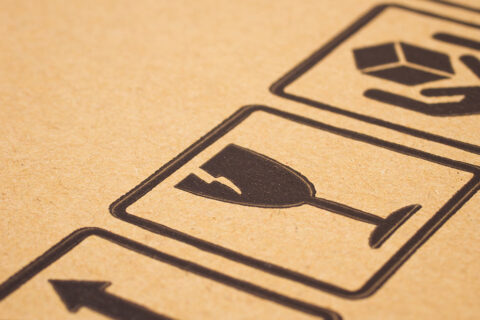However, even the most skilled movers have items that they do not move as per company policy or national or regional regulations. These items are often referred to as non-allowables. In this blog, we list five of the most universal non-allowable items that your movers will most likely not take off your hands and provide strategies for dealing with these objects.
What Won’t Your Movers Move?
While some non-allowables are obvious, others may surprise you. Some of the most important non-allowable items are as follows.
- Animals
Your pets are part of your family and obviously an important part of your moving logistics. While you may be able to find a pet kenneling or moving service to help with this challenge, your general movers will not transport your animals.
- Combustibles
Because in-transit conditions can be difficult to control completely, volatile and potentially damaging substances are not allowed in moving trucks. Combustibles, from fireworks to drain cleaner, are virtually always non-allowables.
- Firearms
Firearm transportation laws can be complex, especially if you’re moving between two states. Check with your local Bekins agent for the appropriate process when moving firearms.
- House Plants
Plants may seem harmless compared to the other non-allowables on this list, but many states have restrictions on plant transportation. These restrictions inhibit the spread of blights and pest infestations.
- Perishable Food
Any item that cannot make the move in good condition should not be handed over to your mover. In the case of perishable food, many moving companies have specific policies against transporting these items because bad food can pose a health and safety hazard.
The term non-allowables is also sometimes used when referring to sentimental items. These items, while not hazardous or regulated, often cannot be replaced if lost or damaged. Many moving companies recommend moving these items yourself.
What Can You Do With Non-Allowables?
Once you know that your movers will not transport a specific item, you must decide what to do with that object. In most cases, you have the following options for dealing with non-allowables.
- Alternative Transport
If your items can’t be loaded onto a moving truck, you may be able to transport them to your home via another method. A common alternative transport method is shipping by mail, but this method likely has limitations as well.
Shipping is most appropriate for non-allowables that fall into the category of sentimental personal items. You can track this package on its own, which may give you more peace of mind than putting those items in one box among your many other containers.
However, shipping is not without its risks. You could potentially lose a package in the mail. If you choose to ship non-allowables, consider investing in insurance, mail certification and other precautionary measures.
Additionally, be sure to comply with all regulations for your chosen alternative transport method. For example, combustibles, firearms and liquid chemicals cannot be mailed for the same reasons they cannot usually be moved.
- Disposal
In many cases, disposing of non-allowables and then investing in new versions is preferable to the logistics involved in arranging travel that is separate from your main move. For example, if you have large amounts of frozen food, your only real options are to eat it, donate it to an organization such as Move For Hunger or put it in the trash.
Disposal can be a good option for liquid chemicals and other potentially hazardous non-allowables that you may not want to transport in your personal vehicle. However, if you decide to get rid of these items, you must first check the preferred disposal method. You could cause property damage or even face fines should you choose to dispose of these materials in a septic, plumbing or garbage system.
- Personal Transport
For the items you want to keep close and can’t bear to part with, you may need to transport these non-allowables in your personal vehicle. Keep in mind that transporting these items in the cab of a moving truck, if you’re performing the move yourself and even if you’re the one driving, may still violate regulations.
In some cases, your moving company may make an exception based on your specific circumstances. For example, a professional mover might be willing to tackle houseplants if you aren’t crossing state lines.
The exact list of non-allowables for your moving company may differ from this general list. Always check with a representative before packing any item that may not be allowed, particularly if that item can be considered hazardous.
Use this list to ensure that you comply with all company- and region-specific moving restrictions so that your move stays as streamlined as possible.
For more expert moving help, trust the team at Bekins Van Lines, Inc.

